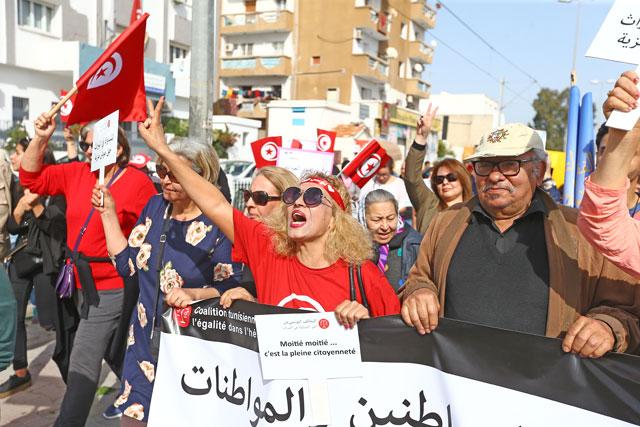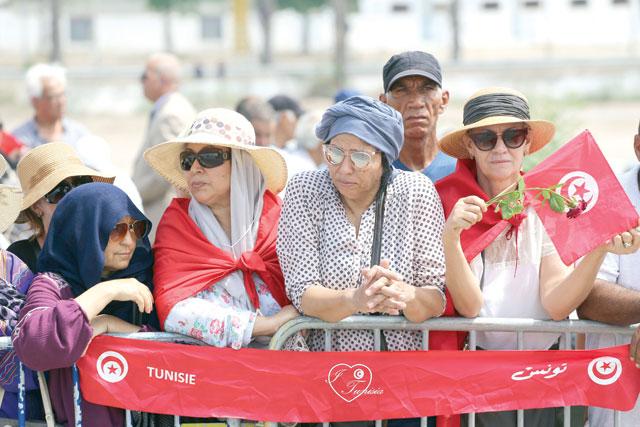You are here
Gender equality push picks up pace in Tunisia
By AFP - Apr 01,2018 - Last updated at Apr 01,2018
TUNIS, Tunisia — Long seen as a pioneer for women’s rights in the Arab world, Tunisia is pushing ahead with reforms promised after its 2011 revolution — but campaigners say much remains to be done.
The country’s 2014 constitution was praised as a key achievement in the revolt that toppled longtime dictator Zine Al Abidine Ben Ali and sparked the Arab Spring uprisings.
But much of it has yet to be passed into law, including provisions on gender equality.
Now, moves are afoot on women’s political representation, interfaith marriage and the contentious question of inheritance.
A law on violence against women, passed last year, finally came into force in January.
A new electoral code forces political parties to put forward female candidates for municipal elections set for May.
Since September, Tunisian women have been free to marry non-Muslims.
But now a commission set up by President Beji Caid Essebsi to examine “individual liberties” and equality will tackle a particularly contentious question — reforms to the country’s inheritance laws.
‘It’s time’
Current legislation, inspired by interpretations of Islamic law, allocates a man twice the inheritance of a woman.
Women led more than 1,500 demonstrators in Tunis earlier this month to call for equal inheritance rights.
But their demands and Essebsi’s moves to change the law have sparked outrage from conservatives.
Muslim clerics have labelled Essebsi’s proposals “a flagrant violation” of Islamic precepts.
But Bochra Belhaj Hmida, head of the commission, said that “there is a real political will” to change the legislation.
“The role of the politicians is to raise the level of citizens’ awareness... It’s time,” she added.
In Tunisia, rare opinion polls suggest that a majority of people are opposed to equality in inheritance.
However, many parents already apply the principle by giving their daughters extra money while they are still alive.
‘Not simple’
Observers say there is a window of opportunity to change the law ahead of 2019 elections, thanks to Essebsi’s current hold on power and the consensus between his party, Nidaa Tounes, and the Islamists of the Ennahdha Party.
But given the subject’s sensitivity, the commission has put off publishing its proposals until after municipal elections in May.
Hmida said Essebsi wanted to “leave a very important trace in history”, echoing that of Tunisia’s first president Habib Bourguiba, who gave the country its groundbreaking personal status code.
Adopted in 1956, the code granted Tunisian women rights that were unprecedented in the Arab world.
Essebsi’s commission is also set to propose changes to laws on family status and passing on nationality to children.
It has plenty of work to do: it has identified some 2,500 texts as unconstitutional — including anal testing of homosexuals and prison terms for “attacks on morality”.
Related Articles
TUNIS — A Tunisian presidential commission on Wednesday unveiled a raft of proposed liberal reforms, including equal inheritance rights for
TUNIS — Tunisian women led a march by more than 1,000 demonstrators on Saturday, including men, to demand equal inheritance rights for both
TUNIS — Thousands of Tunisians on Saturday attended the funeral of president Beji Caid Essebsi as the North African nation gears up for snap


















